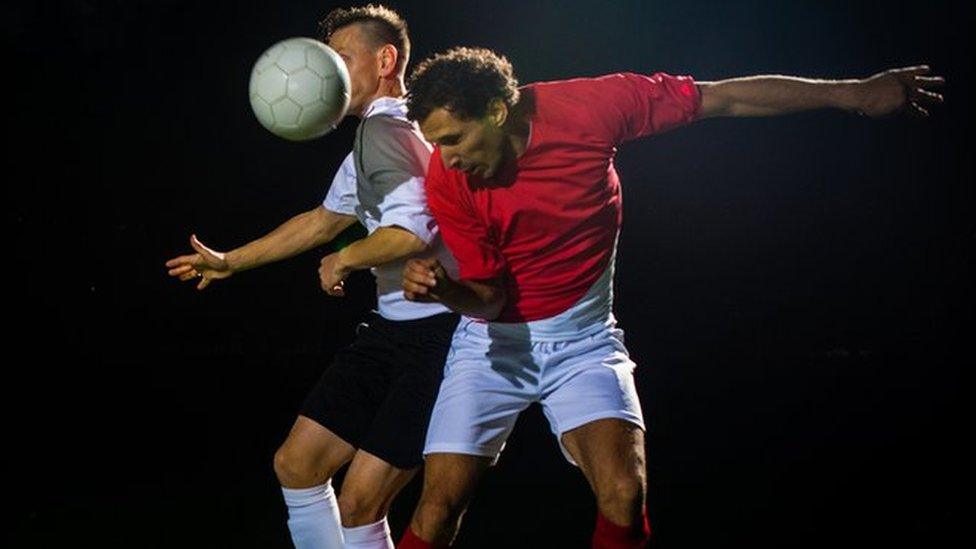Teen girl footballers have double concussion risk of boys
- Published
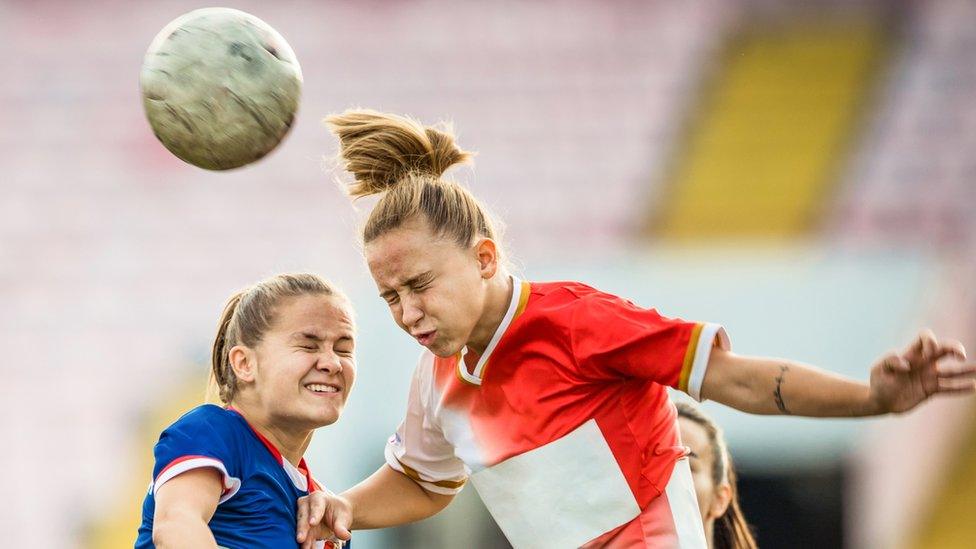
Teenage girls were more likely to be concussed on contact with the ball or a goalpost than another player
Teenage girls who play football run nearly twice the risk of concussion as teenage boys and take longer to recover, a study of US high school football suggests.
It found concussion in girls was less easy to spot and they were less likely to be taken off the pitch.
Females are known to be at greater risk of concussion although it's not understood why.
It's time to focus on girls - and not just boys, UK researchers said.
The study, external of 40,000 female high school footballers and a similar number of male footballers in Michigan over three years found the risk of sports-related concussion in girls was 1.88 times higher than for boys.
There were more than 1,500 concussions in total, with around two-thirds occurring in girls.
In the study, teenage boys were most often injured when colliding with another player while girls were more likely to be concussed on contact with the ball or a goalpost, but this was less obvious.
Boys were 1.5 times more likely than girls to be removed from play on the same day and allowed to recover quickly. Teenage girls who were concussed took, on average, two days longer to recover from injury and return to play.
Dr Willie Stewart, senior author of the study and honorary professor at the University of Glasgow, said: "This highlights female athletes are at greater risk of concussion and the threshold for them should be lower.
"We need to think less about collisions and more about contact because girls are told to sit out less than boys."
Guidance on children heading a football in training was updated last year across most of the UK, external after research showed that former footballers were three-and-a-half times more likely to die from brain disease.
Children aged under 11 are no longer taught to head footballs and heading is only introduced gradually for older children and teenagers. Heading is still allowed in matches but the advice to coaches is: "If in doubt, sit them out."
But Prof Stewart said research in this area was all based around boys, despite the fact there were big differences in the way boys' and girls' bodies responded to head injuries and the way they were managed.
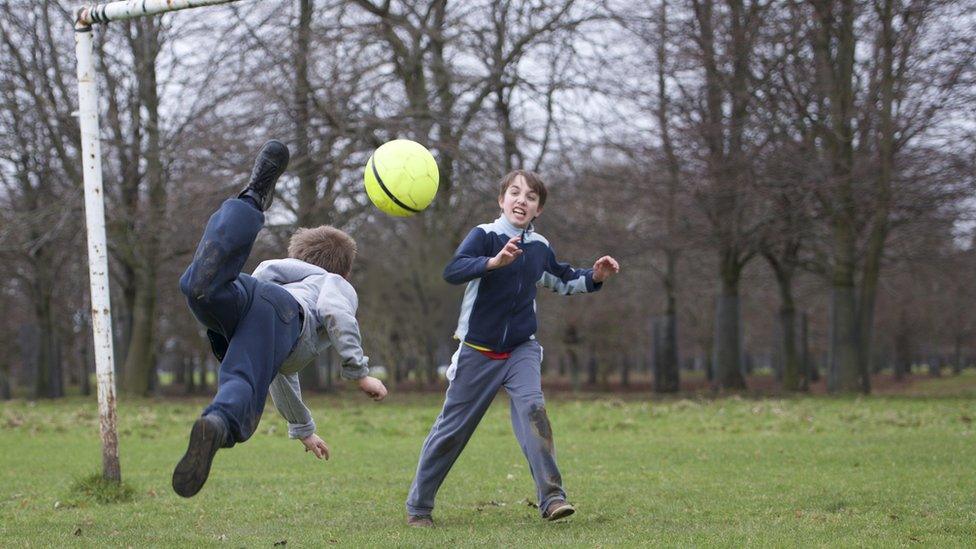
Children under 11 in the UK are not taught how to head a football in training
The reason female athletes are more likely to have concussion is not clear. Girls could be more likely to report symptoms but they also "have lower neck strength and girth" than boys, the study says, which could put them at greater risk after heading the ball.
There is also a suggestion that hormones could play a role in delaying the recovery of women after concussion.
"There might be value in sex-specific approaches to concussion education and management in this age group," Prof Stewart said.
The data in the study was analysed by researchers at the University of Pennsylvania and Michigan State University and published in JAMA Network Open.
'Sex-specific research'
Dr Abigail Bretzin, postdoctoral fellow and certified athletic trainer at the University of Pennsylvania, echoed the call for female-specific studies, saying: "Our findings add to research showing that female athletes are at increased concussion risk compared with male athletes, and highlight the importance of sex-specific research in this field."
This research was funded by the Football Association and the Professional Footballers' Association, NHS Research Scotland and the Penn Injury Science Center, among others.
A spokesperson for the FA said it was "committed to supporting further research in the future to better understand the impact of head injuries and concussion in the women's and girl's game, as there is currently limited information available.
"This new study is an important piece of research and the findings are consistent with other research papers in this area that have reported concussive symptoms are higher in female athletes than they are in male athletes."
A study involving hundreds of former professional footballers is trying to compare defenders' and strikers' brains to find out more about the risks from concussion in football.
There is still no definitive evidence that heading a football causes dementia.
In rugby, the long-term risk of head injuries is also a concern. A study of 50 former elite rugby players will try to find out if they are more likely to show early warning signs of dementia.
Related topics
- Published26 April 2021
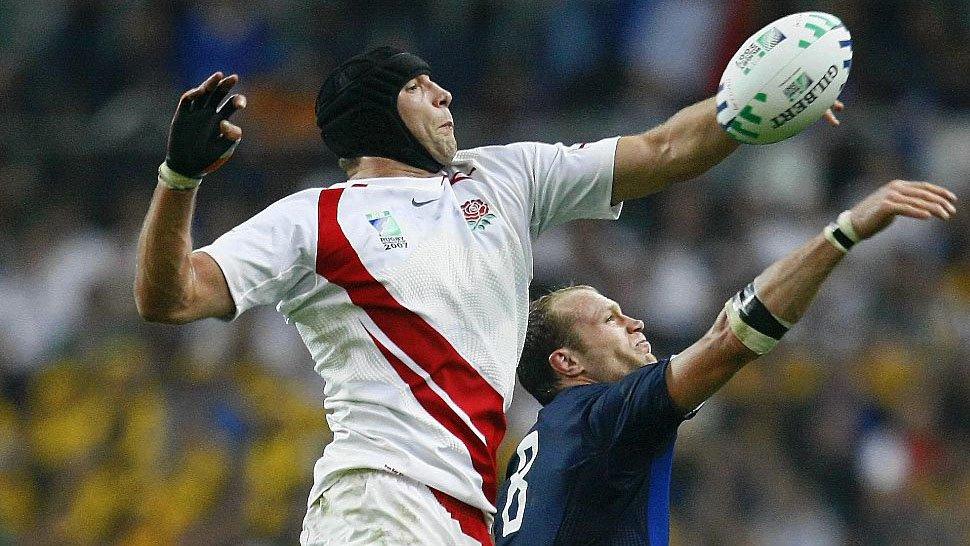
- Published9 March 2021

- Published24 February 2020
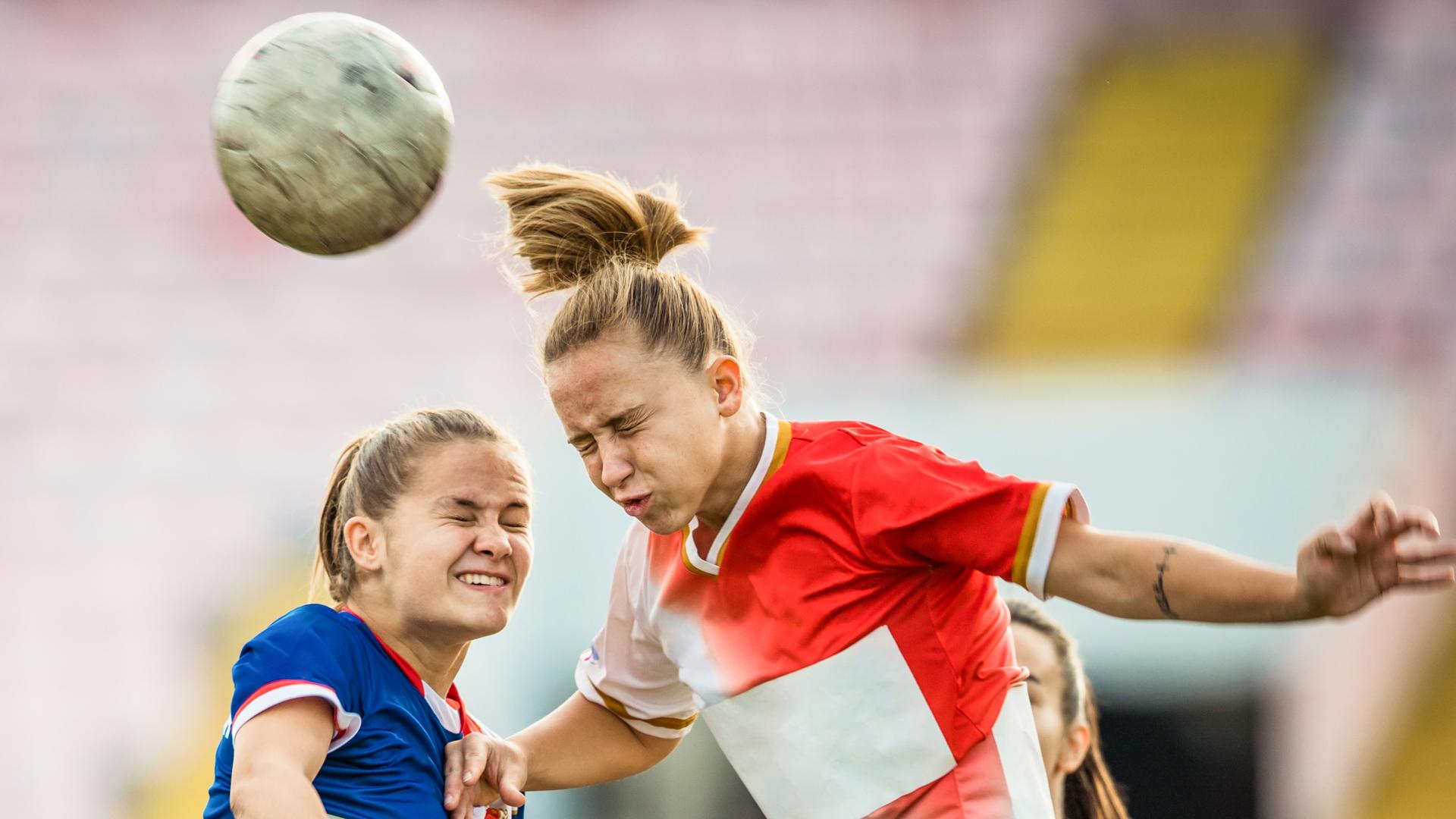
- Published24 February 2020
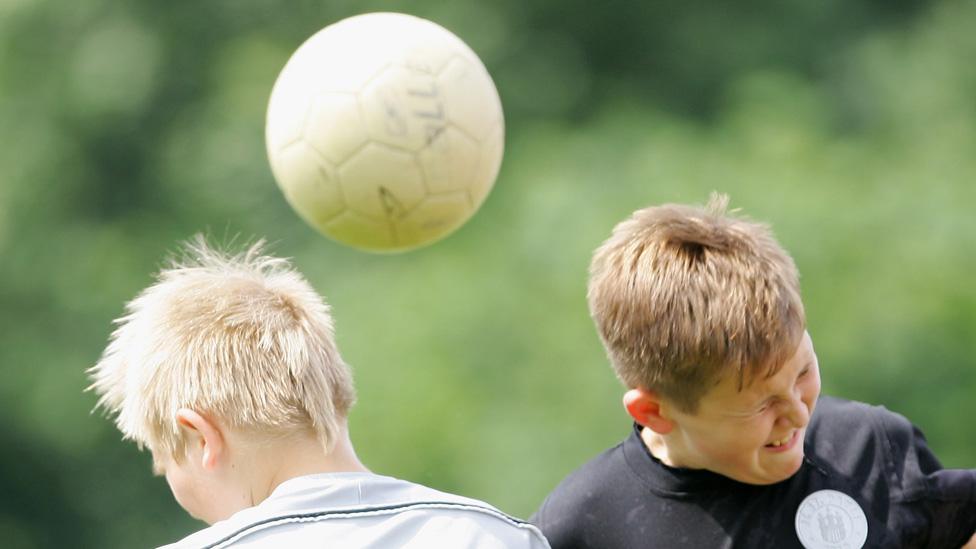
- Published15 February 2017
